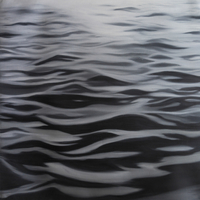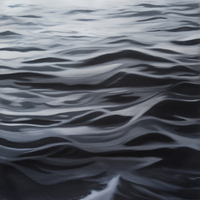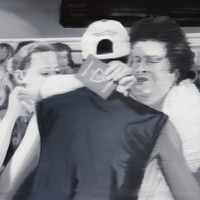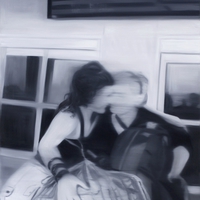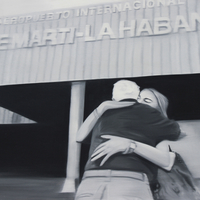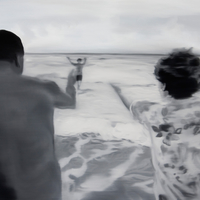Notes on the back of silence, proclaimed as interior echo, as deaf shout to the immensity. Serene manifesto of presence to the otherness of memory: Aluan Argüelles’s work is a necessary revisit to our sorrows and shipwrecks.
The coup de grâce of the American hyperrealism was the demarcation of the most immediate experience of the everyday life from its mechanical and asymptomatic structure. That requirement was incised with the set of disturbing images, where lingering was a key note to define the loss of the notion of time. Aluan Argüelles uses a similar procedure when it comes to talking about widely explored topics of Cuban socio-cultural reality, traumas ensconced in the marrow of the collective reason which, because of their frequency, have lost their dramatic content, their bloody essence, the veracity of their nature, their effusive substantiality.
The exodus, as emotional memory of a farewell, is perhaps the most intense way of addressing the issue of migration in the Cuban space. He uses that moment through photographic images; he transforms it, by the intervention of plastic media into a stopped icon of memory. To do so, he uses the spontaneity of the moment recreated, the effusiveness of its contents, and the neutrality of its tones. It is as grey as that experience is; the bitter notes of pain are contained so, as well as the disproportionate rage and the tear involving departure.
But the trip is drawn by this artist from the position of the person who, self-absorbed, contemplates every flight and survives the entrenchment in the nostalgia. Thus he describes it as if it was an inner wreck, and the wreck is followed by the overwhelming loneliness, the calmed sensation of abandonment. Between the wreck as notion and sense of inhabiting an island, and the sea as a liquid that absorbs everything, devours it, and floods it –terrible frame–, he clings to the bloody drama of death. Those are fierce claims, ominous narrations, and irreconcilable sensations.
His gaze is neither nostalgic nor melodramatic; his gesture is not a vacuous recycling of those idle insularity and migration topics. His perspective is, from the immediacy of the experience, a revival of the foolishness of this island that leaves her children, as a fateful mother, in the darkness of the world.


